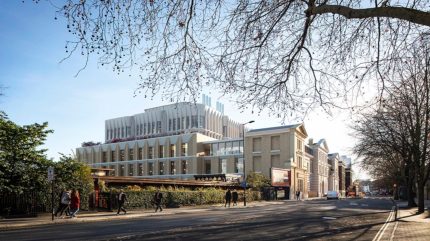
University College London (UCL) has selected Mace, a global construction company, to build its neuroscience facility at 256 Grays Inn Road in London, UK.
The appointment followed a rigorous tendering process.
Mace, which has experience in large-scale projects, including UCL’s Marshgate and the Student Centre, is set to contribute heavily to the project.
UCL’s neuroscience centre is claimed to be one of the world’s largest, and the new building is expected to further enhance its status.
The centre will serve as a hub for the UCL Queen Square Institute of Neurology, the UK Dementia Research Institute at UCL, and an outpatient unit for the UCL Hospitals National Hospital for Neurology and Neurosurgery.
This facility is designed to foster the translation of research into tangible treatments, especially for neurological conditions such as dementia, which currently has no known cure.
The building will unite up to 1,000 scientists, clinicians, and patients, fostering an environment where research can swiftly move from the laboratory to patient care.
The seven-storey structure will include shared laboratories, workspaces, consulting rooms, and a 220-seat lecture theatre, equipped with advanced technology to stimulate innovation.
Mace, with its headquarters in the city, operates globally, including Europe, the Americas, the Middle East and Africa, and Asia-Pacific.
UCL Faculty of Brain Sciences dean and project sponsor Professor Alan Thompson said: “I’m very pleased to welcome Mace to the programme. We felt very confident that the team shared our vision to build a world-class research and treatment centre, which will translate discoveries into treatments and have a real impact on patients with disabling neurological conditions. We are all looking forward to working closely with Mace to move forward without delay.
“This extraordinarily complex and ambitious project will play a critical role nationally and internationally in transforming patients’ lives and I’m looking forward to beginning work on the final stage and seeing the project come to fruition.”



